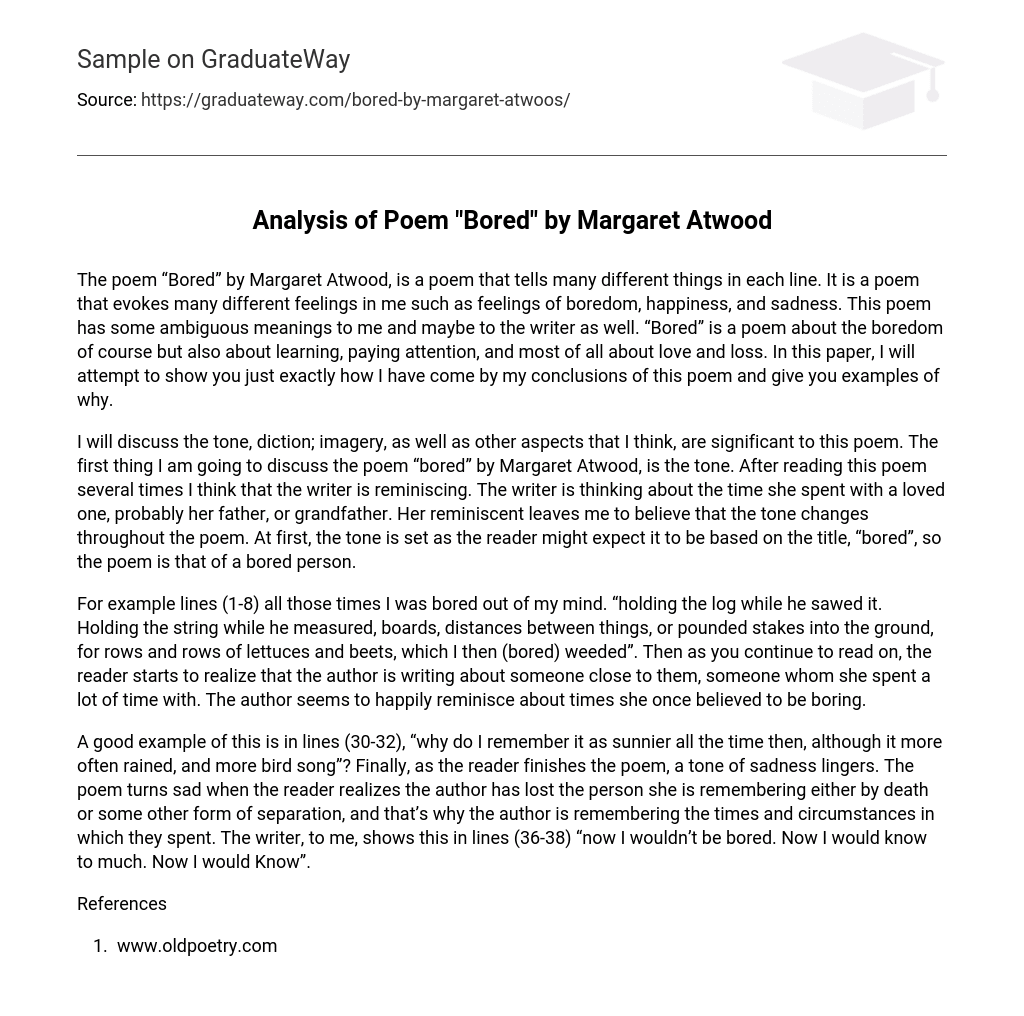The poem “Bored” by Margaret Atwood, is a poem that tells many different things in each line. It is a poem that evokes many different feelings in me such as feelings of boredom, happiness, and sadness. This poem has some ambiguous meanings to me and maybe to the writer as well. “Bored” is a poem about the boredom of course but also about learning, paying attention, and most of all about love and loss. In this paper, I will attempt to show you just exactly how I have come by my conclusions of this poem and give you examples of why.
I will discuss the tone, diction; imagery, as well as other aspects that I think, are significant to this poem. The first thing I am going to discuss the poem “bored” by Margaret Atwood, is the tone. After reading this poem several times I think that the writer is reminiscing. The writer is thinking about the time she spent with a loved one, probably her father, or grandfather. Her reminiscent leaves me to believe that the tone changes throughout the poem. At first, the tone is set as the reader might expect it to be based on the title, “bored”, so the poem is that of a bored person.
For example lines (1-8) all those times I was bored out of my mind. “holding the log while he sawed it. Holding the string while he measured, boards, distances between things, or pounded stakes into the ground, for rows and rows of lettuces and beets, which I then (bored) weeded”. Then as you continue to read on, the reader starts to realize that the author is writing about someone close to them, someone whom she spent a lot of time with. The author seems to happily reminisce about times she once believed to be boring.
A good example of this is in lines (30-32), “why do I remember it as sunnier all the time then, although it more often rained, and more bird song”? Finally, as the reader finishes the poem, a tone of sadness lingers. The poem turns sad when the reader realizes the author has lost the person she is remembering either by death or some other form of separation, and that’s why the author is remembering the times and circumstances in which they spent. The writer, to me, shows this in lines (36-38) “now I wouldn’t be bored. Now I would know to much. Now I would Know”.
References
- www.oldpoetry.com





